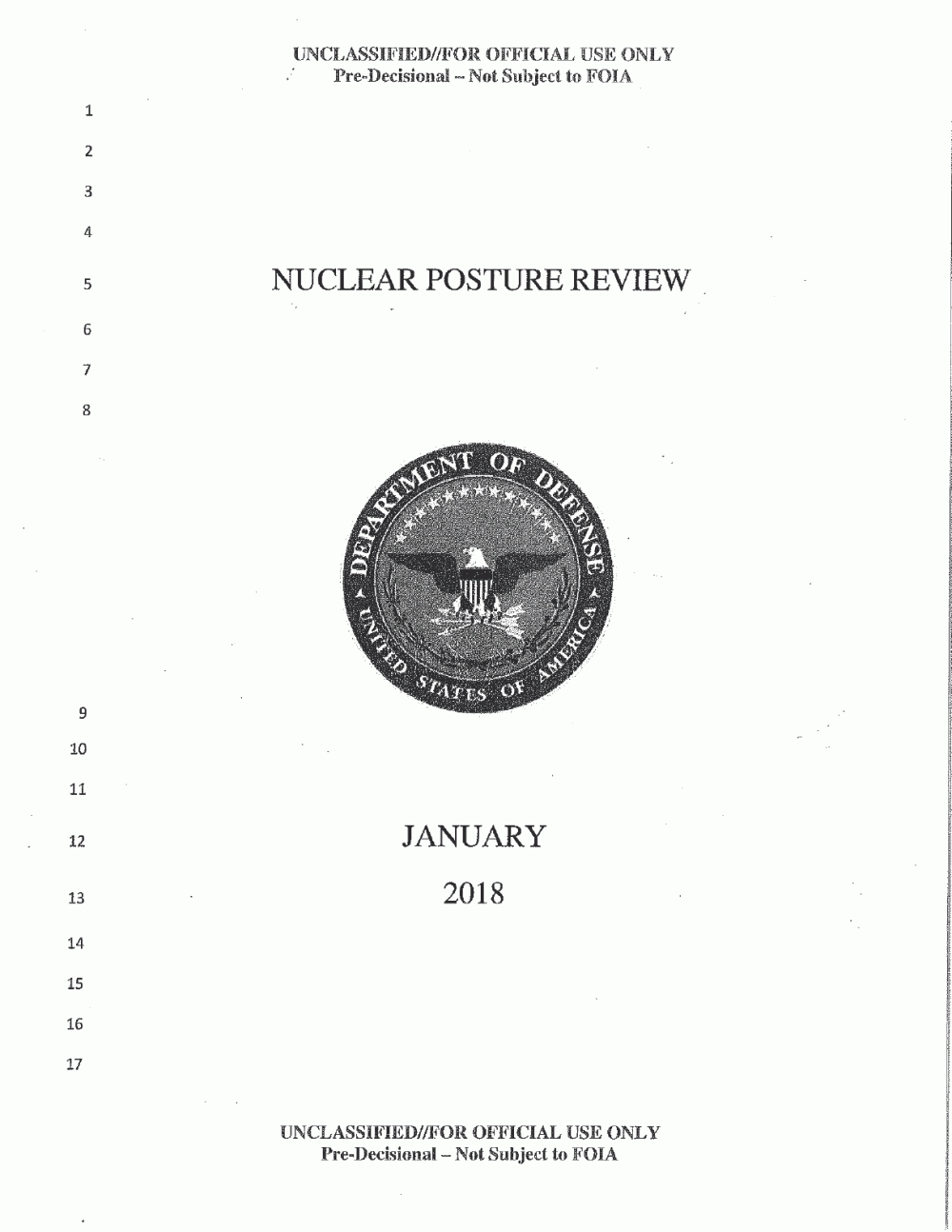Recently I posted about the U.S. Nuclear Posture Review. This review is held every eight years to reexamine the U.S. policy with respect to the use of nuclear weapons. There is a draft of the NPR for 2018 but it has not been approved yet by the President. The current discussion of the U.S. nuclear policy is based on the draft.
The draft of the NPR says, “We must look reality in the eye and see the world as it is, not as we wish it to be. The NPR realigns our nuclear policy with a realistic assessment of the threats we face today and the uncertainties regarding the future security environment.”
One of President Obama’s top nuclear advisors said that the new NPR “repeats the essential elements of Obama declaratory policy word for word” — including its declaration that the United States would “only consider the use of nuclear weapons in extreme circumstances to defend the vital interests of the United States or its allies and partners.”
New text has been added to the NPR to expand the definition of “extreme circumstances.” American presidents have threated to be the first to use nuclear weapons in a conflict only in the event of very dire circumstances such as an attack on the U.S. with biological weapons. The draft NPR adds to the type of non-nuclear attacks that might cause the U.S. to consider using nuclear weapons in retaliation.
The new NPR says that the U.S. might use nuclear weapons in response to a non-nuclear cyberattack on critical infrastructure like the national power grid or the national communications system. Cyberattacks could cripple or destroy some of these important systems. Some senior government officials have commented that cyberattacks against the U.S. definitely qualify as situations that might call for the use of U.S. nuclear weapons.
The NPR draft says, that those “circumstances could include significant non-nuclear strategic attacks. Such as “attacks on the U.S., allied, or partner civilian population or infrastructure, and attacks on U.S. or allied nuclear forces, their command and control, or warning and attack assessment capabilities.”
The draft NPR does not exactly say that a big cyberattack could be one of the “extreme circumstances” that could trigger the use of nuclear weapons. However, a cyberattack would be a good way for an enemy to crash the power grid and/or the communication networks, including the Internet.
A senior National Security Council and State Department official from President George W. Bush’s administration said, “In 2001, we struggled with how to establish deterrence for terrorism because terrorists don’t have populations or territory to hold at risk. So if cyber can cause physical malfunction of major infrastructure resulting in deaths, then the Pentagon has now found a way to establish a deterrent dynamic.”
The NPR mentions concerns about expanding threats in space and cyberspace. The current command and control systems for nuclear weapons are vulnerable. It is possible that a cyberattack could disable or take control of such nuclear weapons as the Minuteman missiles in silos in the Midwest.
While the Pentagon may think that threatening nuclear war in retaliation is a good way to discourage cyberattacks, I think that it is a bad policy. We definitely need to beef up our security for electronic systems which is certainly feasible. We have been working on our own offensive cybersystems which could be used to retaliate against cyberattack. Nuclear retaliation against a real or perceived enemy armed with nuclear weapons could trigger an all out nuclear war.
To abuse a metaphor, if a neighbor broke in and shut down your furnace and your phones, you could set fire to his house. That would probably results in your house catching fire too. This leaves you both homeless.
It has been predicted that the detonation of even a few nuclear warheads could have devastating consequences not just of the victim of the attack but also for other countries that have nothing to do with the conflict. Even if we escaped a full nuclear war, severe global damage and a lot of blood would be on our hands.
